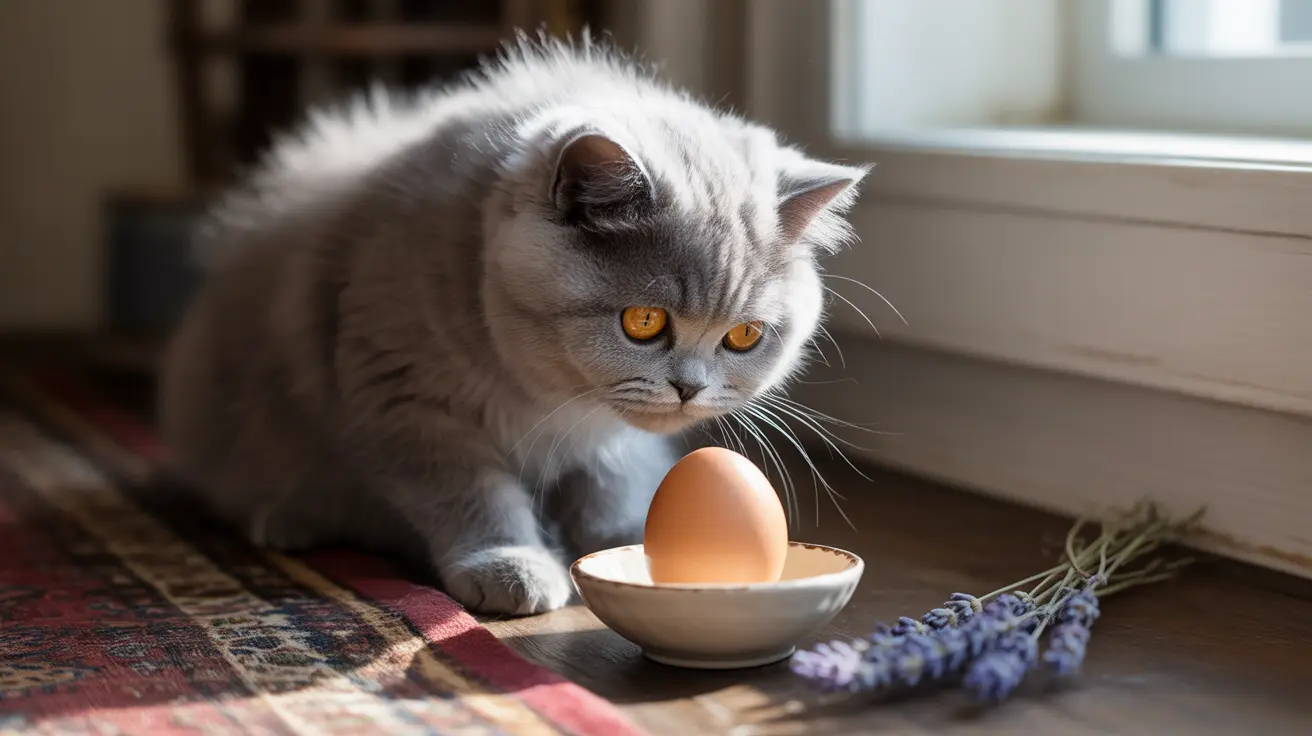The Nutritional Benefits of Hard-Boiled Eggs for Cats
Hard-boiled eggs pack a powerful nutritional punch that can benefit your cat in several ways. As obligate carnivores, cats require high-quality animal protein, which eggs provide in abundance. A single large hard-boiled egg contains approximately 6-7 grams of protein, along with essential vitamins and minerals.
Key Nutrients in Hard-Boiled Eggs
Eggs are rich in vital nutrients that support your cat's health:
- Vitamin D for bone health and calcium absorption
- B-vitamins (B2, B12) for energy metabolism
- Vitamin A for vision and immune function
- Essential amino acids for muscle maintenance
- Selenium and zinc for overall health
How to Safely Feed Hard-Boiled Eggs to Your Cat
While eggs can be a healthy treat, proper preparation and portioning are crucial for your cat's safety and well-being. Always serve eggs plain, without any seasonings or additives that could harm your cat.
Proper Serving Sizes
Follow these guidelines for serving eggs to your cat:
- Limit eggs to 10% of your cat's daily caloric intake
- For a typical 10-pound cat, offer no more than 1-2 teaspoons of egg
- Start with small amounts to test for tolerance
- Feed eggs as an occasional treat, not a daily supplement
Potential Risks and Precautions
While hard-boiled eggs are generally safe for cats, there are some important considerations to keep in mind:
Health Concerns to Watch For
- Obesity from overfeeding
- Digestive upset if introduced too quickly
- Potential allergic reactions
- Complications for cats with kidney disease
Always monitor your cat after introducing eggs to their diet and discontinue if you notice any adverse reactions.
Special Considerations for Different Cats
Not all cats should eat eggs, and some may need special consideration:
Kittens and Senior Cats
Kittens have sensitive digestive systems and should stick to kitten-formulated foods. Senior cats may have different nutritional needs or health conditions that affect their ability to digest eggs safely.
Cats with Health Conditions
Cats with certain health conditions, particularly kidney disease or pancreatitis, should avoid eggs or consume them only under veterinary supervision.
Frequently Asked Questions
Can cats safely eat hard-boiled eggs as a treat?
Yes, cats can safely eat hard-boiled eggs as an occasional treat when properly prepared and served in moderation. Always ensure the eggs are fully cooked and free from seasonings or additives.
How often and how much hard-boiled egg can I feed my cat without health risks?
Limit egg treats to 1-2 times per week, offering no more than 1-2 teaspoons per serving. This amount helps prevent excessive calorie intake while still providing nutritional benefits.
Why should eggs always be fully cooked before giving them to cats?
Fully cooking eggs eliminates harmful bacteria like Salmonella and neutralizes avidin, a protein in raw egg whites that can interfere with biotin absorption.
What signs indicate my cat might be allergic to eggs or have digestive issues from eating them?
Watch for symptoms such as vomiting, diarrhea, excessive grooming, itching, or skin rashes. If you notice any of these signs, discontinue feeding eggs and consult your veterinarian.
Are egg whites better than yolks for cats, and how do they affect my cat's nutrition?
Both egg whites and yolks offer nutritional benefits. Whites provide lean protein, while yolks contain healthy fats and additional vitamins. Both parts are safe when fully cooked, but some cats may better tolerate egg whites if they're sensitive to fats.
Conclusion
Hard-boiled eggs can be a nutritious and enjoyable treat for most cats when offered appropriately. Remember to introduce eggs gradually, serve them plain and fully cooked, and always monitor your cat for any adverse reactions. When in doubt, consult with your veterinarian about incorporating eggs into your cat's diet.






